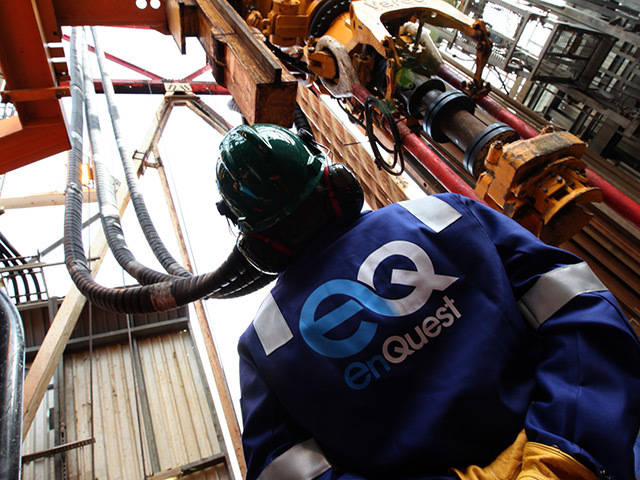
EnQuest today announced deeper cuts to its spending plans as it published full-year results showing it lurched into the red in 2019.
The London-listed firm outlined plans to lower spending last month in response to the crude price slump and Covid-19 outbreak.
EnQuest has now decided it needs to cut even more, and is targeting a £155 million reduction in operating costs to £270m for 2020, and a near-50% drop in capex to £97m.
It means EnQuest has identified combined opex and capex savings of £55m on top of those announced last month.
Directors and senior management have agreed to salary cuts of 20%.
If the company can achieve its cost reduction targets, it will have a cash-flow breakeven of $33 per barrel in 2020.
It comes as the company reported pre-tax losses of £590m in 2019, against profits of £76m the previous year, despite revenues jumping 27% to £1.3 billion.
The company was hit by impairments on its oil and gas assets of £515m as it decided not to restart production on the Heather and Thistle platforms, while Dons was hindered by water injection pump glitches.
The loss of Thistle and Heather contributed to a drop in reserves to 213m barrels of oil equivalent (boe) from 245m boe.
Production rose 23.7% last year to 68,606 barrels of oil equivalent (boe) per day thanks to strong showings from its Magnus, Kraken and Scolty-Crathes fields.
Ebitda increased by 40.5% to £807m.
The company insisted it was better placed to deal with lower oil prices than at any time in its past.
It has reduced its debts and has no payments to make on its senior credit facility this year.
The company had cash and available bank facilities of £216m and net debt of £1.1bn at the end of February.
Its net debt was £1.43bn at the end of 2018.
EnQuest also said its day-to-day operations had not been “materially affected” by Covid-19, though multiple suspected sufferers were isolated on Magnus.
Chief Executive Amjad Bseisu said EnQuest delivered on its targets in 2019, which was marked by “significant production growth and free cash flow generation”.
Mr Bseisu added: “With these significant reductions, we are well positioned to manage through a sustained low oil price environment.
“Our three largest assets continue to generate meaningful operating cash flows, even at low oil prices, and, in the medium to long-term, offer low-cost resource maturation opportunities which are aligned with our proven differential capabilities.”
Recommended for you

